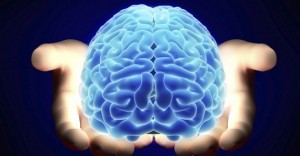A team at The Scripps Research Institute has found significant evidence regarding the neurobiology of addiction that a specific neurotransmitter system, the endocannabinoid system that includes the most common CB1 receptors, is active in the brain region that plays an important role in appetite, memory, mood/ emotion, and addiction. The study, which was recently published in Neuropsychopharmacology, also found that endocannabinoid system can inhibit the effects of alcohol, thus offering promise for future prevention and rehabilitation strategies.
 According to a professor of the neurobiology of addiction at Scripps Research, this is the first study to show a “direct cellular interaction between endocannabinoids and alcohol in the brain.” (Science Daily)
According to a professor of the neurobiology of addiction at Scripps Research, this is the first study to show a “direct cellular interaction between endocannabinoids and alcohol in the brain.” (Science Daily)
The study abates a paper published in 2001 in the Journal of Neuroscience, in which a European group asserted that endocannabinoid receptors (CB1 receptors) did not exist in the brain region known as the central amygdala (which is part of the limbic / reward system of the brain). This paper’s conclusions were widely accepted by the the field. However, the scientists at The Scripps Research began to suspect that the presence of CB1 receptors in the central amygdala had somehow been missed. Especially since, as many of the scientists at Scripps, said that they began studying the endocannabinoid system in the central amygdala because of addiction. And they found that CB1 receptors are very abundant throughout the brain.
One of the scientists reiterated that there has been numerous behavioral studies on substance abuse, but a very limited amount on the physiology of addiction. And aside from the 2001 study, even less on the physiology in the central amygdala (a region of the brain that is key in understanding the drug and alcohol abuse).
Using electrophysiological techniques in brain slices to test the response of brain cells from the central amygdala in rats, the scientists found compelling evidence that CB1 receptors were active there. They also determined that alcohol and CB1 agonists have opposing effects on GABA (which is a main inhibitory neurotransmitter in the brain that fine-tunes signaling throughout the nervous system. GABA plays a key role in alcohol dependence and other addictions.) The scientists concluded that because there is such a wide presence of CB1 receptors, there is a greater possibility of inhibiting the effects of alcohol.


